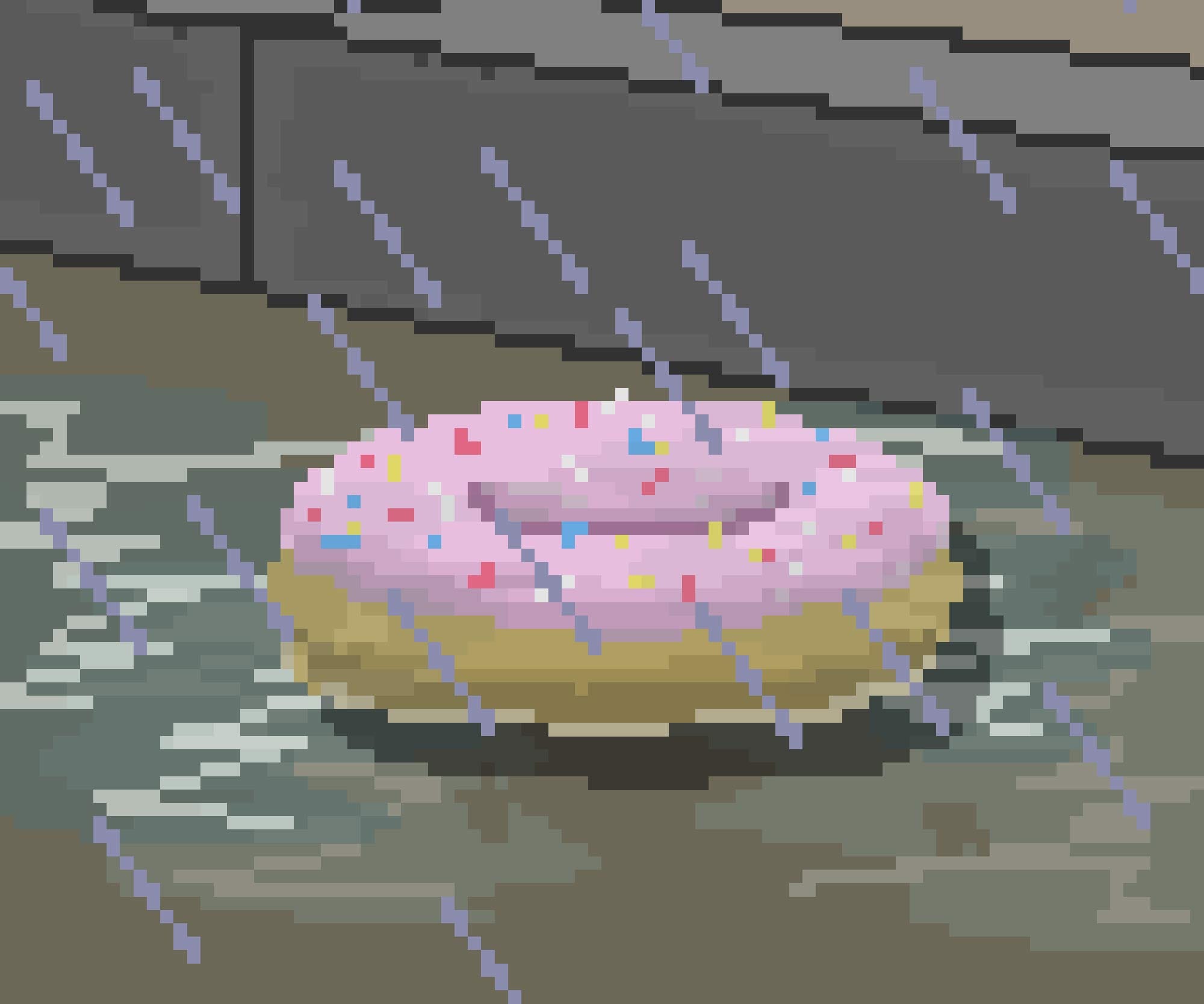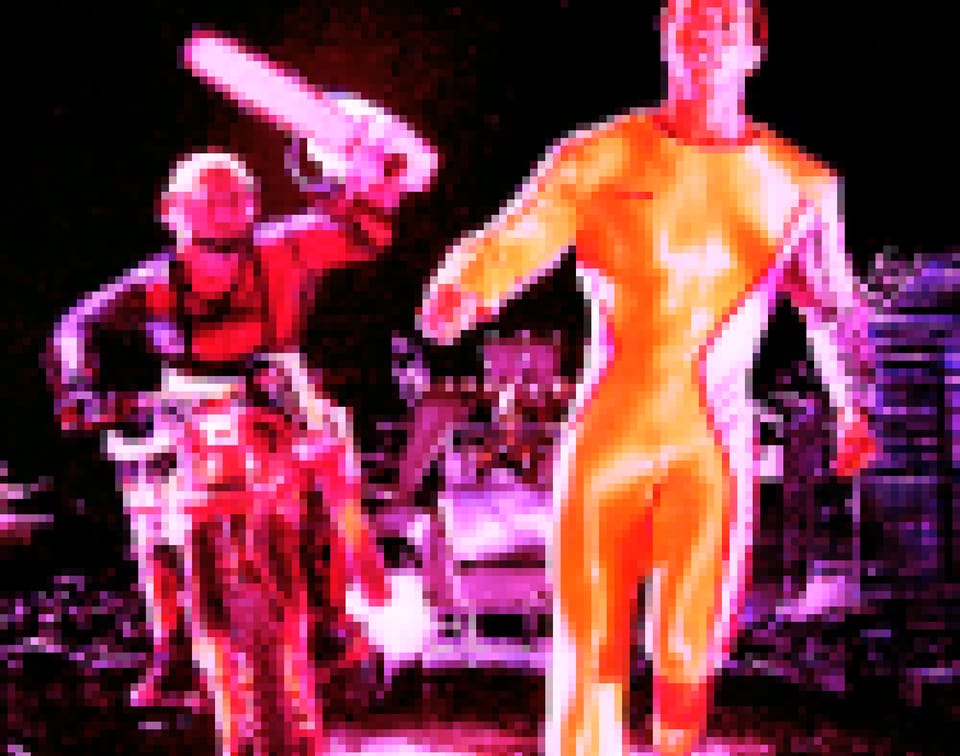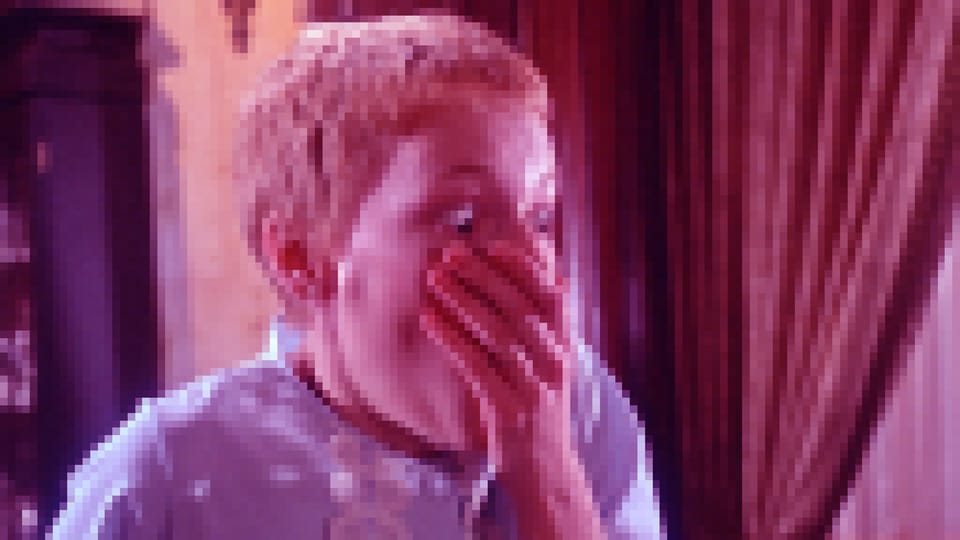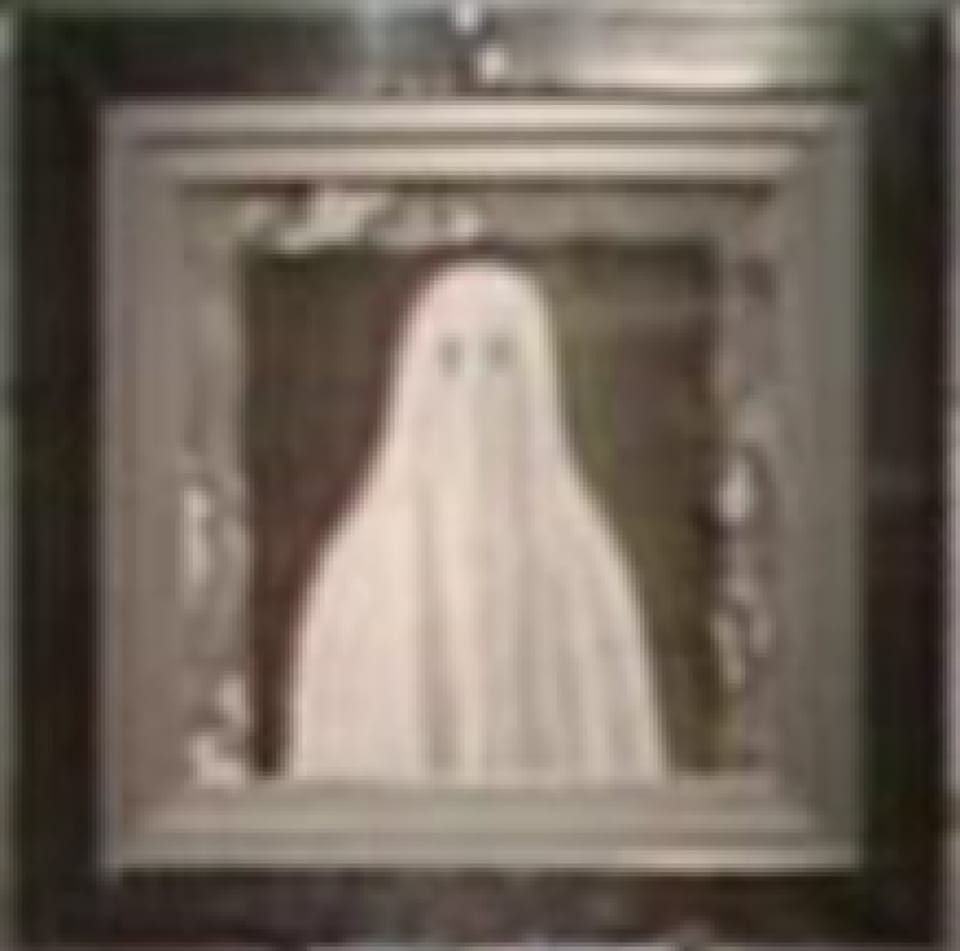Just what is the ending to Roadside Picnic all about?
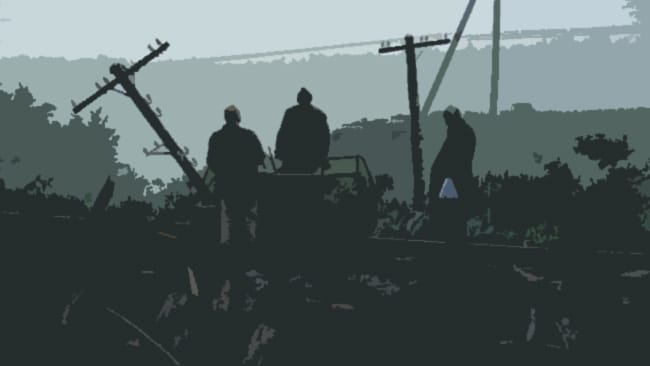
This contains spoilers obvs.
The End
“In Roadside Picnic, the Strugatsky brothers have employed the tactic of preserving the mystery to excellent effect; indeed, as they surpass the canon established by Wells, so, too, they transcend the SF tradition.”
- Stanisław Lem
One of the strengths of Roadside Picnic is that it is written with a brevity and fleetingness that fizzes and sparks your intrigue. This is one of the most compelling features of the novel, but it is also something that makes much of it slightly ambiguous. So much so, I argue that the last chapter has two subtly different readings, both of which are perfectly acceptable ways to look at it.
The ending is quite sudden and is slightly anticlimactic, leaving questions. Quite what the novel is trying to say, and what exactly Red’s motives are, are not entirely clear.
But in many ways, the answers are all there. They’re just mentioned briefly in only a few words, and perhaps only feature once or twice. The trouble is: if you’re not paying attention, you can easily miss them …
Vagueness
The vagueness has a way of creating wonder, tension and danger, compelling you to keep reading, as you try to glean a little more description about what’s going on. Or as Lem puts it:
“The sense of fascination and depression which the ‘scenes from the life of a treasure hunter’ (or ‘stalker’), the core of the story, inspire in the reader are the product of a deliberately restricted field of vision.”
Roadside Picnic doesn’t like to give you answers. It is choppy in its story telling, and choppy is the right word because each chapter plonks you into a situation in which you have to start again to build up an understanding of what the situation is.
It is fairly well known that the Soviet censors gave the Strugatskys a hard time when they were trying to publish Roadside Picnic. I’ve always took that for being one of the reasons for the choppiness. The novel feels like parts were just taken out, censored, not to be replaced.
If so, perhaps the Soviets did the writers a favour. Perhaps it is the difficult nature of the censors that makes the book so good. Perhaps most authors could do with Soviet censor-style editing. I tried to read the Strugatsky’s The Doomed City, published after the fall of the Soviet Union, and I found it very dull, flabby and lacklustre, and that only confirms that theory for me. Roadside Picnic in contrast is sharp and tight, and only just barely manages to say what it’s trying to say.
The novel is largely about unknown aliens with unknown technology, so it is fitting that much of the details are missing. Even what is explained about the Zone is only one thousandth of what the Zone actually contains. We don’t see the aliens, and we don’t know what the things they left behind do, and we don’t know how they work. This is science fiction that doesn’t care about whys and doesn’t care about answers.
But this is like life: things led to the situation you live it right now, yet whether or not you know how everything came to be doesn’t strictly matter. It doesn’t change the situation you’re in. Roadside Picnic take that notion and applies it to an alien invasion.
Unexplained Phenomena
One of the joys of Roadside Picnic is that it is crammed full of ideas. The book is full of simple, yet engaging, concepts, and often offers no explanation why strange things happen or even what exactly it is like to experience of these phenomena. In many ways it’s a fantasy novel, full of weird occurrences.
In Stanisław Lem’s essay on the book, he gives a lot of thought to the nature of the visit and entertains the premise that the junk left after the visit might have been damaged in the landing. His essay is well worth a read, and he puts a lot of logic and thought into the what the alien visit is about, but I do think he overthinks things a little, perhaps even putting more thought into it than the authors themselves. Sometimes fiction is about what is engaging and entertaining, and what is plausible takes the back seat. Lem’s take is a little too ‘rational scientist’ for my liking. Fiction doesn’t have to be feasible.
Lem does not seem too fond of the ending, saying it leans too far into fairytale than science fiction. Me, I think the last chapter is consistent with the preceding chapters. He also makes the claim that adhering to science is much more difficult for a writer than to rely on religion and fantasy – which I agree with, but that does not mean a story faithful to science is worth reading!
Lem, however, doesn’t seem to entertain the premise that, considering the picnic hypothesis, the junk left by the aliens is actually literal junk – that is, it is all of absolute low regard to the visitors and not worth taking with them. Lem doesn’t seem to latch onto the idea that the visitors’ technology if far, far greater than the junk they left behind. I think he thinks that way because he is resistant to the novel’s belittling of humanity.
Lem prefers a kind of crash landing in which the artifacts are damaged, and while he’s aware of the novel’s main theme of discrediting humans, he posits that the authors’ refusal to remark on it as a crash landing notion is done to preserve the cynicism of the story:
“We understand quite well why they chose this course. In the meeting of the civilizations, both sides were meant to be discredited. Men agree on using the gift only in base and self-destructive ways because that is human nature; and the Senders prove their murderous indifference to humanity because beings of high intelligence do not give a damn about their intellectual inferiors”
To me the picnic hypothesis is really the core of the novel, that the technology left behind is literally the dregs of the visitors’ technology. It is placing humanity low down in the importance chain. It’s about knocking humans of their pedestal and showing humans to be worth very little in the grand scheme of things. The mystery, the lack of knowledge all tie in to this, as does the way humans respond to the encounter.
Capitalism
I think that is a fair reading that Roadside Picnic is a critique of a capitalist system, but I think the criticism might be a little more universal than that; that of serfs and masters, of leaders and minions. I don’t know all that much about life in Soviet Russia, but I think the paradigm of drudgery Red realises he is part of applies also the Soviet life. Soviet Russia had masters and serfs just like other societies throughout history. It is about coming to terms with the fact that there are people in positions of power and there are proles used by those in power.
Roadside Picnic is not just about political oppression, but about societal oppression, and the influences that compel us to be cogs in the machine. It’s about a man realising he is a tool of the system. It is also about a man who is finally defeated by it.
As a young man, Red makes money in the Zone only to waste it on drinking excessively. Being a Stalker is a very dangerous job which yields high rewards, and the most daring of Stalkers are rewarded the most. It is a (capitalist) system than values the commodity over individual lives; a system that pays more for dangerous work, and encourages risk-takers to take risks. But it is a system in which Red feels comfortable squandering his hard-earned cash.
By the end of the novel, Red sees himself for what he is: a tool who risks his life for other people’s gain. He questions why he ever bothered to save people from the Zone. He questions his compassion and humanity. It is the Zone, not Capitalism that finally defeats him, but it is Capitalism that put him in the Zone.
“A machine, he thought. You’ve made a machine out of me …”
Red Feeds Arthur To the Meat Grinder
Some online comments say that Red takes Arthur into the Zone to use him as a sacrifice to get to the Golden Sphere. Lem also takes this position in his essay. He also mentions how he has discussed the ending with the Strugatskys, from which one can infer they confirmed to him the sacrifice theory. I think Red does take Arthur to let him be killed, but true to Roadside Picnic fashion, it is not entirely clear.
Red is a generally a horrible person: bad tempered, violent, sarcastic; yet he’s also brilliant. His character is one of the joys of reading the novel. He is repugnant, yet highly skilled at Stalking. But on top of all that, he is generally a good person. Sure, he is violent and abusive, but deep down he means well. I suppose his is a case of: he doesn’t have to be a pleasant person to be good at his job, and his job is so valuable that he will always be needed whether he’s nice or not. It is also the paradigm he is in that is eating away at him.
But there are a few moments in the final chapter that point to Red definitely deciding to use Arthur as a sacrifice, and he does it because he wants to save his afflicted daughter:
“I have a choice: him or her. And for the first time he became consciously aware of this choice: either this kid or my Monkey. There’s nothing to decide here, it’s a no-brainer.”
Because the system made him become a Stalker, and because of the Zone’s toxic influence, Red is compelled to killed another human in a desperate attempt to improve his own life. The novel never really explicitly mentions that Red intends to sacrifice Arthur, you can easily miss the references if you don’t read carefully, and there are many parts that point to an opposite reading. Because of this, the conflict in Red’s mind can often be read two ways: either he intends to kill Arthur, or that he was never intending to do that. Thus the following has a dual meaning, depending on how you read Red’s motives:
“And then he imagined the look on Burbridge’s face when he found out that his Arthur, Archie, the pretty boy, his flesh and blood, that the kid who followed Red into the Zone, in his, the Vulture’s, footsteps, wasn’t some useless twerp but his own son, his life, his pride.”
Either the look on the Vulture’s face is shock at finding out his son has been sacrificed (and Red has spitefully done this to him), or it’s shock at finding out what a skilled Stalker his son turned out to be (which he never thought him capable of).
In fact, there are so many parts that suggest Red definitely does not intend to let Arthur be killed, that I say that’s a perfectly valid reading of the novel.
I actually prefer that reading. Maybe I’m just an optimist at heart idk, but I feel Red is not that kind of person – and I suppose Red’s conflict-ridden mind shows that he really isn’t that kind of person. There are various points that suggest Red never was going to let Arthur be killed:
“If you only knew, Vulture, how things would turn out. If you only knew, Vulture, that this time I’d listen to you. ‘And here, Red, you won’t manage alone. Like it or not, you’ll have to take someone else. You can have one of my pipsqueaks, I don’t need them all …’ He convinced me. For the first time in my life I had agreed to such a thing. Well, never mind, he thought. Maybe we’ll figure something out, after all, I’m not the Vulture, maybe we’ll find a way.”
Here, Red contemplates how he took the Vulture’s advice and proceeded with a Vulture-like plan. However, he’s not entirely sold on the idea because there is a ‘maybe’ that things will turn out differently.
“Will it really be his last time? Oh, kid, it looks like t!”
If Red intended Arthur to be killed, why would he ask if it will be his last time? OK, you could say Red is trying to fool himself into thinking he’s not so cold hearted, but it’s another example of ambiguity the novel offers. Even lines like: “And the kid … the kid gets nothing. If the old bastard told me even half the story, then the kid gets nothing,” can be read as if it Red was intending to bring Arthur out of the Zone alive (and give him nothing).
All the way through the final chapter, Red considers Arthur’s future as a Stalker, and decides he will make a fine Stalker. He is annoyed at Arthur’s sloppiness and he saves Arthur’s life during the burning incident:
“Redrick didn’t say anything. Screw you and your thanks! Just what I need you for—saving your ass.”
Either way – whether Red is willing to sacrifice another human or not – the ending still presents us with Red giving up on realising he is a tool for the political system; a machine being controlled and pushed by greedy forces. So we have a tale of someone who never really thinks for himself. He is constantly playing a hero, constantly taking risks for money. The final chapter is him finally realising how much of a machine he is: something that does a thing when you press the right buttons. He feels unappreciated, or unrewarded for the good work he does.
Red Says Nothing
But we know that Red does allow Arthur to be killed – or, at least, he says nothing while he watches Arthur skip to his death. And depending on how you read the chapter, it still makes sense. It is either Red completing his plan to sacrifice Arthur, or it’s that Red has no more personal strength by that point, that he has been defeated by the Zone and is a mere shell of a person who just cannot continue doing what he has been doing, so he let’s Arthur die because he has given up.
It works both ways because of Red’s instinct to resist being a murderer throughout the chapter. So even when he completes the plan, it can still be read that Red never intended to let him die. He just gave up trying to be the hero.
By the end Red has been beaten by life, beaten by the Zone. After such terrible trials and punishment of burns and loud noises and goo, and after a lifetime of being a machine and risking his life for others, this is the moment he finally gives up trying, tipped over the edge.
One other point that goes against the Arthur-sacrifice idea is the plan is to take the Wish Granter out of the Zone. Red would probably need a second pair of hands to do this. The Vulture’s advice: “And here, Red, you won’t manage alone. Like it or not, you’ll have to take someone else,” can be read as needing two pairs of hands to retrieve the Wish Granter.
So in that reading, Red simply gives up on doing things for other people. He’s giving up on the plan to split the profits with the Vulture. Letting Arthur die is leaving the golden sphere in the Zone.
One Final Wish
There is another reason Red was never planning to get Arthur killed: He never believed the Golden Sphere grants wishes:
“But only if a miracle is possible, said some skeptical voice in his head, and, feeling horrified, he suppressed it with frantic zeal.”
The notion of a wish-granter brings a touch of childishness to an otherwise grown-up book, slipping a little too far into make-believe. In Lem’s essay, he compares the last chapter to a fairytale. I don’t think this is quite true, although the wish-granting part is very much fairytale. While the other seemingly impossible alien artifacts *could* have a scientific explanation, the wishes part … just doesn’t.
So the wish part certainly jars, and it is perfectly understandable to assume the granting of wishes is make-believe, just an urban legend passed between Stalkers. In true Roadside Picnic fashion, we are never shown the golden sphere doing anything but lying there. Whether it grants wishes or not, we are never told.
If you take the Arthur-as-sacrifice reading of the novel, then the fact Red doesn’t actually believe the wish part is true lends a extra dark layer to things. Here it is Red clutching at straws, desperately trying to find a way out of a futile existence, when deep down he knows there is no way out, and he allows another person to be killed regardless.
There are some religious aspects to Roadside Picnic, but I don’t know enough about the Strugatsky’s faith to know exactly what they are trying to say. There is Gutalin, the zealot, who buys the artifacts only the throw them back into the Zone, and there’s the Golden Sphere.
Circles and spheres have long been symbols of the divine: eternal, never ending, perfect; and the Golden-Wish-Granting-Sphere appears to be a symbol of god. However, this god is not golden, floating and ethereal, but copper-coloured, fallen, and discarded into the dirt, like it has “tumbled out of some huge pocket or gotten lost, rolling away, during a game between some giants.”
I don’t know if the Strugatsky’s are making a statement about god being dead or make-believe, or whether they had something else in mind, but it is clear their depiction of the divine is a touch more shabby and rundown compared to the glittering magic of the aliens. By the way the sphere is described, it seems to me like the Strugatsky’s are calling it out – and possibly religion too – as a sham.
Whatever it is, I don’t see religion as being a particularly central theme to the novel. The novel is more about the status of humanity compared to higher alien beings, and about Red’s place within a political system and his coming to terms with that. Perhaps the message is that religion isn’t the answer, that going down that route, you will not find any answers.
This brings us to Red’s wish:
“I’m an animal, you can see that I’m an animal. I have no words, they haven’t taught me the words”
There’s a distinct finality to his words; the words of someone who has been defeated, the words of someone who has given up. I think what he realises is that thingshe thought he valued – money and success – are merelyrewardsof the political system.He has spent his whole life trying to do the right thing; fighting authority and going against what others tell him to do.
“Because I’ve never sold my soul to anyone! It’s mine, it’s human! Figure out yourself what I want—because I know it can’t be bad!”
What he longs for the most is to be happy and live with his family, with a daughter who isn’t afflicted by a Zone-inspired condition. He realises what he wants most of all is to be liberated from a system that controls him and his actions,and which reduced him to a killer. Even when rebelling, one’s actions are still dictated by the oppressor. He realises he wants it all brought down, an end to it all, to start again, simply. Freedom for all:
“The hell with it all, I just can’t think of a thing other than those words of his— HAPPINESS, FREE, FOR EVERYONE, AND LET NO ONE BE FORGOTTEN!”
Red is reduced to the simplistic optimism of a juvenile, not because those dreams are foolish, but because life and the need to make a living killed those dreams. Adults are just children with responsibilities. But when coming face to face with his deepest wish, there is nothing else he wants but freedom and happiness.
But what happens next all depends on whether you believe the Golden Sphere actually grants wishes. It means either Red gets his wish, or gets a partial wish, or he ends it all right there. It doesn’t seem to me like he’ll be taking that sphere out of the Zone, so what happens next is either: The pure fantasy of a granted wish; or another way in which a person can end all their suffering …
Over and out for now, guys!
xxx
Lem
… since men, though they kill flies, do not exactly travel to the ends of the Earth to do so, similarly the aliens, even if they should regard us as flies, should not go out of their way to seek earthlings to swat.
Lem is a little bit obtuse since people do travel across the world to hunt, and although they hunt larger animals than insects, there is still a distinct imbalance in the situation when humans using jeeps and guns. So the idea of intergalactic hunters isn’t as ridiculous as Lem suggests. Although I would agree that for aliens to bother making the effort to travel to Earth just to hunt is a bit on the weak side.
